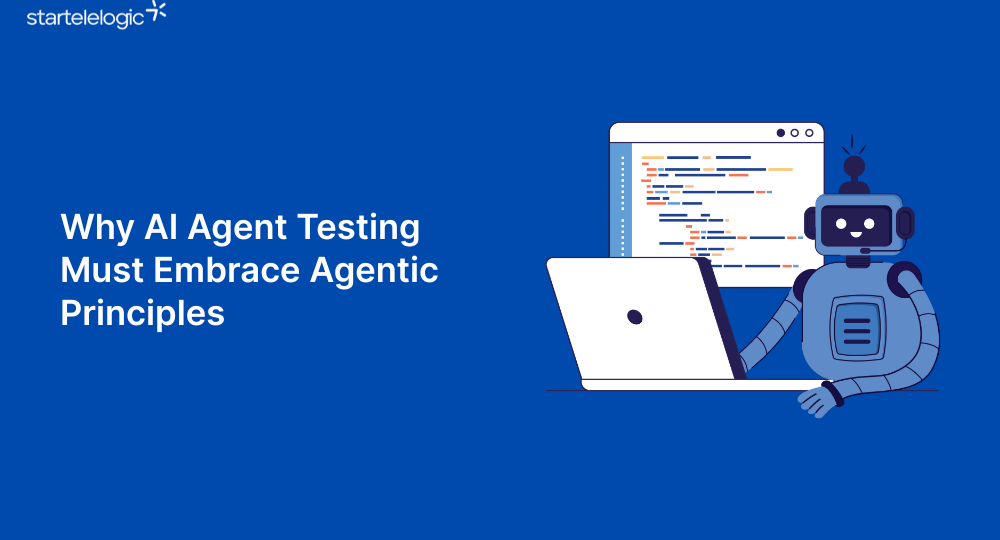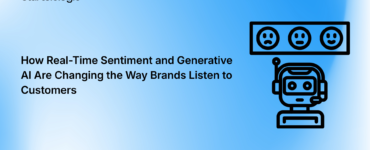Artificial Intelligence (AI) is rapidly evolving, with agent-based systems gaining prominence across industries. From autonomous vehicles to personalized digital assistants, AI agents are now tasked with handling complex decision-making in dynamic environments. However, traditional testing methodologies fall short when it comes to evaluating these systems. This is where the concept of agentic principles becomes essential. In this article, we will explore why AI agent testing must embrace agentic principles, how it impacts performance and trustworthiness, and what strategies organizations can adopt to future-proof their testing frameworks.
Understanding AI Agents and Agentic Principles
Before diving deeper, it is important to define two key concepts:
What Are AI Agents?
AI agents are autonomous systems that can perceive their environment, reason about it, and act in pursuit of specific goals. Unlike traditional software that follows static instructions, AI agents adapt, learn, and interact with the world in dynamic and sometimes unpredictable ways. Examples include:
- Chatbots that provide customer support.
- Autonomous delivery drones.
- Financial trading algorithms.
- AI-driven healthcare diagnostic assistants.
What Are Agentic Principles?
Agentic principles are guidelines that emphasize autonomy, adaptability, decision-making, and accountability in intelligent systems. These principles recognize that AI agents should not be tested as static tools, but as entities capable of:
- Independent reasoning.
- Continuous learning.
- Context-sensitive decision-making.
- Ethical alignment with human values.
Why Traditional Testing Falls Short
Traditional software testing frameworks focus on verifying predictable inputs and outputs. For example, if a function receives input X, the expected output should be Y. However, AI agents rarely operate in such deterministic environments. Their performance depends on real-time data, environmental dynamics, and probabilistic reasoning.
Here are some limitations of traditional testing when applied to AI agents:
- Static Test Cases vs. Dynamic Behavior: Static test cases cannot fully capture the adaptive behaviors of agents.
- Limited Edge-Case Coverage: AI agents often face unexpected real-world scenarios that are difficult to simulate in static testing.
- Lack of Explainability Metrics: Traditional testing does not evaluate how or why an AI agent makes a decision.
- Scalability Issues: With agents that continuously learn, the test environment must evolve alongside the agent’s growth.
This gap necessitates a paradigm shift—enter agentic principles.
The Importance of Embracing Agentic Principles in AI Agent Testing
Testing AI agents through the lens of agentic principles ensures that these systems are not only functional but also trustworthy, resilient, and ethical. Below are the key reasons why agentic principles are critical:
1. Ensuring Reliability in Complex Environments
AI agents often operate in uncertain and dynamic environments. By adopting agentic principles, testing can simulate real-world unpredictability, ensuring agents respond reliably under varied circumstances.
2. Improving Transparency and Accountability
Agentic testing emphasizes explainability. When agents are tested for transparency, it becomes easier to understand decision pathways, identify risks, and ensure accountability.
3. Facilitating Continuous Learning and Adaptation
Unlike static systems, AI agents evolve over time. Agentic testing incorporates continuous evaluation methods to ensure agents remain aligned with intended goals even as they adapt.
4. Strengthening Ethical AI Practices
Agentic principles require that AI agents are tested not just for performance, but also for ethical decision-making. This is vital in sensitive domains like healthcare, finance, and law enforcement.
5. Building User Trust
For end-users to adopt AI agents, trust is essential. Testing that embraces agentic principles reassures users that AI systems are safe, reliable, and fair.
Strategies for Implementing Agentic Principles in AI Agent Testing
To embrace agentic principles, organizations must rethink how they design and execute their AI testing frameworks. Here are some actionable strategies:
1. Scenario-Based Testing
Instead of rigid test cases, scenario-based testing evaluates agent performance across diverse and unpredictable contexts. For example, testing an autonomous vehicle in varying traffic, weather, and pedestrian conditions.
2. Adaptive Testing Environments
Testing environments should evolve in response to agent learning. This can be achieved using simulated ecosystems or digital twins that mirror real-world dynamics.
3. Explainability Audits
Integrating explainable AI (XAI) techniques into testing ensures that agents are evaluated on their ability to justify decisions. This helps uncover hidden biases and improves accountability.
4. Ethical Stress Testing
Agents must be tested against ethical dilemmas. For instance, healthcare agents should be evaluated on how they handle trade-offs between patient safety and resource allocation.
5. Continuous Monitoring and Feedback Loops
Agentic principles require ongoing validation. Continuous monitoring ensures that as agents evolve, they remain safe, reliable, and ethically aligned.
6. Multi-Agent Interaction Testing
Many AI systems involve multiple agents interacting with one another. Testing should evaluate collaboration, competition, and conflict resolution in such ecosystems.
The Future of AI Agent Testing
The future of AI depends on developing robust, trustworthy agents. As AI continues to integrate into critical aspects of society, testing must evolve beyond traditional methods. Agentic principles will play a central role in this evolution.
We can expect future AI testing to involve:
- Standardization of Agentic Testing Frameworks: Regulatory bodies will likely develop standards for testing AI agents based on agentic principles.
- Integration with AI Governance Models: Testing will become a core aspect of AI governance, ensuring compliance with ethical and legal standards.
- Advanced Simulation Platforms: Realistic simulations, powered by digital twins, will provide scalable environments for agentic testing.
- Human-AI Collaboration Testing: As humans and agents increasingly collaborate, testing will need to evaluate joint decision-making.
Conclusion
As AI agents become more integral to society, ensuring their reliability, transparency, and ethical alignment is paramount. Traditional testing methods cannot keep pace with the adaptive, dynamic nature of intelligent agents. By embracing agentic principles, AI agent testing can evolve to meet the demands of real-world applications. This shift not only enhances performance and trust but also ensures that AI remains a force for good in our increasingly automated world.
In essence, AI agent testing must embrace agentic principles to guarantee safety, reliability, and long-term trust in AI-driven systems. Organizations that adopt this forward-thinking approach will be better equipped to navigate the complexities of tomorrow’s AI landscape.




